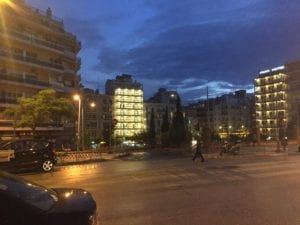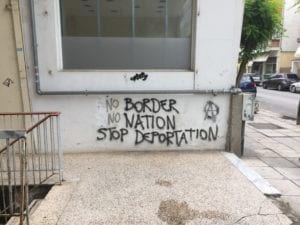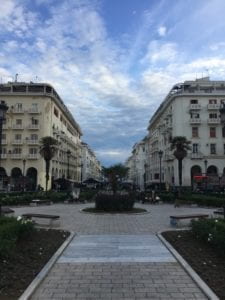Grace Larkin
English PEN
London, England
I’m a sophomore in Gallatin concentrating in Literature and Journalism of Human Rights. I’m very grateful to be a 2017 Gallatin Human Rights Fellow. I’ll be working in London with English PEN, part of PEN International, which has centers in over 100 countries. PEN works at the intersection of literature and human rights.
With my fellowship, I’m looking to understand how various types of literature and writing can promote social change. A big part of this is focusing on how censorship and restrictive governments can threaten writers and the right to free speech. This can include issues with technology, like surveillance and restriction of online information or access to the internet. However, it also includes examining traditional barriers to free speech like censorship and restriction of press, expression, and thought.
There are so many cases of imprisoned or exiled writers around the world whose cases are often ignored or forgotten. For example, I imagine much of my work at PEN will deal with Turkey. Over 150 journalists and writers are now detained in Turkey, making it the world’s biggest jailer of journalists. Since the attempted coup in 2016, academics, writers, activists, artists and contributors to independent media have been targeted and arrested on illegitimate charges.
Of course, I will also work on cases from other countries, as there is a wide range of violations against freedom of expression. In the UK, the British government’s Prevent program (part of a counter-terrorism strategy) has placed a demand on universities to police students and speakers, which has contributed to a censorious culture. In February 2014, Saudi Arabia passed a new anti-terrorism law, using a vague definition of terrorism to crack down on free speech. Eritrea, Bahrain, Iran and Egypt will also be among the countries of focus.
I’m especially interested to understand the various ways that PEN works to defend human rights. They have campaigns for legal reforms and government action at the highest level, as well as small vigils and letter writing events for writers in prison. They seek to provide visibility for writers through awards, readings, translation, campaigns, and other work. They also have a literature outreach program that runs workshops with refugees and asylum seekers, young people, and prisoners across the UK and then publishes their writing. I’m eager to see what level of human rights work I will be primarily interested in.
An update from London coming soon. Thank you for reading!












